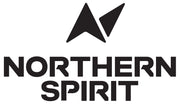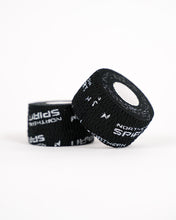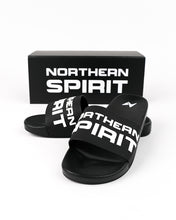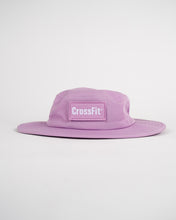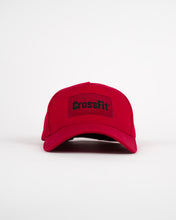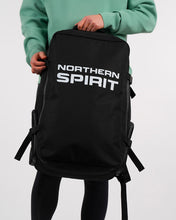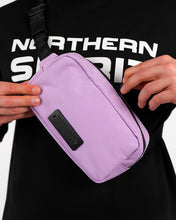Why is it so important to read the composition label on clothes?
- Consume better to consume less
- Understand what material is near you and how to keep your skin safe
- Completely understand where your clothes come from
- Take care of your planet and take care of yourself
There are a few point of information on the composition labels:
- "Made in Portugal": All of our goods are manufactured entirely in Portugal (accessories, lining, packaging). Fabrics are the only item that can be manufactured out of Portugal: we have some fabrics made in Italy.
- "Designed in France": All of our products are created, designed, and tested entirely by our team in France.
- Composition of the product: For a clearer understanding of what all the composition means, go back to the first part of this article.
- Symbol of clothing care: How to wash and care for your clothes to keep them in good condition for as long as possible.
1. Type of materials and proprieties
- Recycled Polyester / Polyester
Polyester is one of the most well-known fabrics in sportswear. It's very light and breathable, which makes it ideal for sports. It's attractive because of its stretch power, rip-resistance, and quick-drying properties. Even after a lot of washing, it does not shrink.
It is one of the best fabrics for sportswear because of its low absorption capacity. Polyester, unlike cotton, allows body moisture to escape.
Science has been able to create recyclable polyester from plastic waste such as water bottles. The total amount of waste that can be used to make recycled polyester is milled several times to make granules. These granules are then melted down to form yarn carriers, which will be used to create fabric. This method is environmentally friendly, as it allows for the recycling of waste while also saving 59% of energy and 32% of CO2 emissions as compared to traditional polyester manufacturing.
- Recycled Polyamide / Polyamide
Recycled polyamide is produced in the same way as recycled polyester is. Made from plastic waste found in the sea, such as water bottles.
- Elastane
The majority of compositions contain elastane, which complements and improves the properties of the majority of other fibers. Its high resistance and elasticity make it a must-have in sportswear. This fiber's suppleness allows it to perfectly mold the body's movements. The elastane creates a "second skin" effect. Elastane improves the fabric's breathable properties, and reducing moisture and bad smells.
Did you know that we can extend it up to seven times bigger than it is? After that, it will be back to its original size without deformations. The elastane in your sports wear allows for a greater compression of the body, which improves blood circulation while also increasing muscular efficiency.
- Polyamide / Elastane: perfect match
STRENGTH - ELASTICITY - LIGHTNESS
- Supplex
In our collection, Supplex is used for bra lining. It's a combination of polyamide and elastane. It has the same feel as a 100% natural cotton and is quite gentle on the chest's sensitive skin . Alternatively, the fabric is very breathable for sportswear.
- Cotton
Cotton is a classic timeless fiber that is both comfortable and easy to carry. It allows the skin to breathe. Cotton is a natural, comfortable material that keeps you cool. Cotton is a great fabric to wear for sport, because it is soft and comfortable. Perfect for your skin because it's 100% organic and made of natural fibers.
- Viscose
Viscose is a form of synthetic silk made from natural fibers. Ultra-soft, gentle on sensitive skin, breathable, and light, this fiber is also very durable over time and can endure a lot of washing. Since it is made of natural fibers, this fiber is fully biodegradable, anti-bacterial and anti-allergic. This material is not quite absorbent, which is a benefit during the summer.
- Modal
Modal is made from natural materials, but it needs a chemical transformation, which is why it is classified as an artificial fabric. The modal fiber is not classified as a synthetic fiber, unlike polyester, it is made from natural materials. Since it is made of natural fibers, this fiber is fully biodegradable, anti-bacterial and anti-allergic. Modal is an environmentally friendly material since it uses much less water and energy than other textiles (10 to 20 times less water than traditional cotton production).
Modal is an artificial fiber that can be a good substitute for cotton. It's more resistant, absorbent, smooth, and elastic. Modal is an ideal summer material due to its absorption properties. Modal absorbs water two times faster than cotton: perfect for sportswear. The softness of this material will make you fall in love with it.
- Lyocell/Tencel
The name « Lyocell » is a contraction from « LYOphilization » and « CELLulose ». This fabric is also known as Tencel, a trademarked name of the lyocell processus by the Austrian company Lenzig.
Less well-known fiber, but with a smooth, pleasant-to-touch finish and a higher breathing rate. Tencel is an eco friendly synthetic fiber manufactured from eucalyptus cellulose. Tencel is also a must-have for the skin: it's anti-irritant, anti-bacterial and hypoallergenic due to its ability to filter bacteria and pollutants. It has better breathable properties than cotton, perfect for summer!
While cotton is still the most generally used fiber in the textile industry, synthetic materials such as modal and Tencel have very appealing properties and should continue to grow rapidly.
Modal and Tencel are much more eco friendly than traditional cotton. They use much less water and energy than cotton and need much less surface area to produce. Nonetheless, it consumes natural resources, so remember to "buy less but better" and "prioritize repairs when possible."
2. "Made in", what does it really means for the footprint carbon?
"Made in Portugal" does not imply that the entire product is manufactured in Portugal. That simply means that the final stages of production are completed in Portugal. Be vigilant when you seeing these words... That's why, for Northern Spirit, the traceability and transparency are our priorities.
When you see "Made in Portugal" on a label: the textile can be made in Asia, elastic or accessories made in America, lining, embroidery, printing, packaging made somewhere else... And only the final step, such as embroideries or sewing, are made in Portugal. Can you imagine the carbon footprint? When only the footprint is taken into consideration, it is preferable to have all of the manufacturing in the same country or region! And that's how we choose to operate: proximity.
In the sourcing of Northern Spirit's accessories, we pay close attention to where everything comes from. Our sewing is done in Portugal, and we try to source all of the accessories from there as well. Elastics, cordons, zippers, linings, and other details like hangtags, labels, packaging are all manufactured in Portugal. (Not only in the same country, also in the same region as the final manufactory). It is the most effective method, and it is the one we have chosen to minimize our carbon footprint to the greatest extent possible.
Our fabrics are produced in Portugal to minimize the amount of travel of your product. And lot's of those are also made in Italy, which is well-known for its high-quality recycled fabrics.
We will always state where the fabric is made, because "made in Portugal" is not enough for us: the entire trail of your product is significant.
Nothing you're wearing from Northern Spirit is from outside of Europe central. The prices are automatically higher due to the higher level of workmanship, but the best quality is there, the footprint is as small as possible, and these are our priorities: quality, long-term viability, traceability, and transparency.
3. Clothing care symbols, how to respect it?
Your clothes might last longer if you wash and care about them correctly, and today, we all need to consume less, but better.
And what if you've cut the label off? Don't worry, we have all the details on our website. If you are undecided, please contact us via email; it would be our pleasure to assist you with your clothing care.
We screen-print all of the items that will come into direct contact with your skin. You won't even notice it, and it's more comfortable than labels. Be aware that we do not do a simple flocking that will disappear after two washings. The screen printing would last the entire life of the garment.
